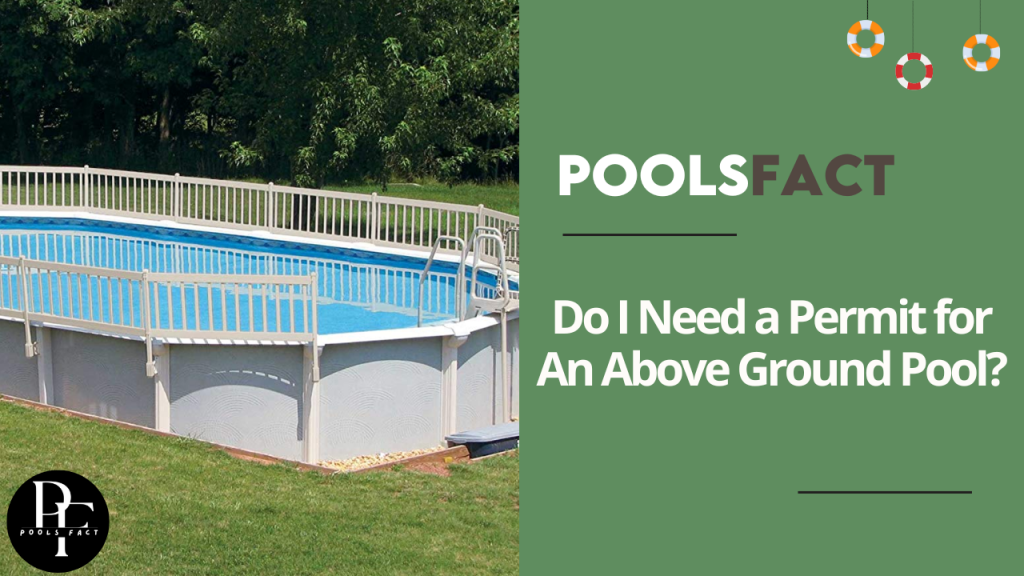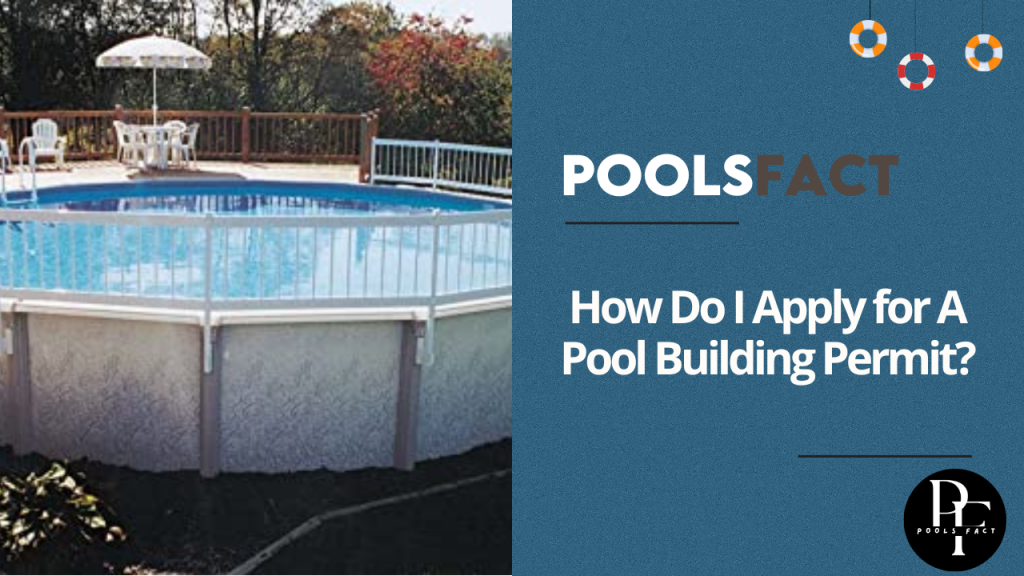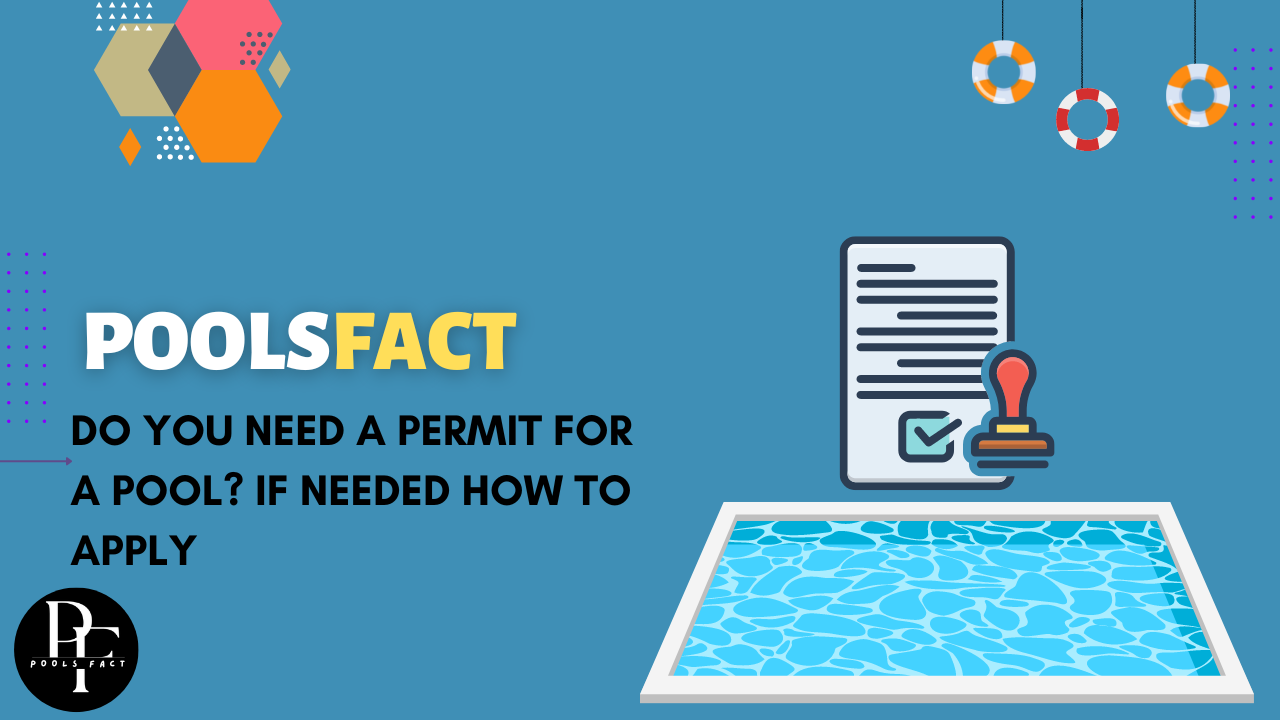You’ve taken the plunge and opted to put in an above-ground pool, huh? You’ve made the right decision, but before you dive in, it’s important to learn whether or not a swimming pool on your property would require a building permit. A common question heard in the workplace is “Do above-ground pools need a permit?”
Any in-ground or above-ground pool in Virginia that is more than 150 square feet in size, has a capacity of more than 5,000 gallons of water or is deeper than 2 feet. It is possible that you will also need to submit an application for gas and electrical permits for your pool.
If your above-ground pool ends up needing a permit, we’ll cover the essentials of getting one so you’re prepared.
Do You Need a Permit for An Above Ground Pool
The rules for installing a pool in a home or business vary depending on where you live. Refurbishments that alter the outside or that alter the existing wiring or plumbing do not necessitate a permit. However, in most cases, permission is required prior to establishing, repairing, or filling a swimming pool.

To put it another way, if you plan on expanding the size of your home or performing any sort of major renovation in Texas, you will need a pool permit. Make sure that any work that requires a plumber, HVAC technician, or electrician is done by a certified expert and that this is reflected in the permit.
Permitting agencies will double-check that your paperwork contains all you need to travel safely. The state wants you to follow the rules so that you don’t get in trouble.
For any permits that are required, contact Development Services. There are exceptions in certain cases as well, so be on the lookout for details and double-check everything before proceeding.
When it comes to building a kiddie pool, a permit is not required in all states. Some states do not require a permit unless the pool is deeper than 18 inches or an inflatable kiddie pool from Target.
If you wish to install a pool with a depth of more than 24 inches and an area greater than 150 square feet in some places, you will need to get a zoning check, inspection, site plan, and construction review plan approved. In other places, though, you also need an electrical license to get a general building permit.
The appropriate regulations can be learned by contacting a qualified swimming pool contractor. Thanks to their experience and thoroughness, they will ensure that no aspect of your project is neglected.
Also Read: How Close Can a Pool Be to A House? Install It Like a Pro
What if You Don’t Get a Permit?
Obtaining the necessary permits may seem like a headache, but you shouldn’t avoid doing so. Permission is not required to install a pool, and it’s likely that you’ll never be discovered for doing so. If you get found, however, you’ll have to shell out a lot of money in penalties and may even have to remove the pool.
Before having a swimming pool built, you should always check the local regulations to see if any permits are needed, or you might seek the advice of a knowledgeable construction attorney.
So, how Do I Apply for A Pool Building Permit?
If you hire a professional pool builder, he or she will handle acquiring the necessary permissions. Some pool owners, meanwhile, want to handle the application process on their own. However, if you hire a contractor, you’ll have a lot less work to do.

As an added bonus, they will take care of organizing everything for you in accordance with state regulations, which they know better than you.
It is the responsibility of pool owners to provide all relevant information when applying for a license. They should also include details about their pool, such as the size and materials used. Having drawings as a physical representation of the architectural work is a must for pool owners.
This will allow the inspectors to determine whether or not you are allowed to continue building. Also, you need to make sure that your pool follows all local and state rules.
You Should Be Ready to Make Changes and Apply for Related Permits
Keep in mind that your ambitions and the current state of your backyard may necessitate the acquisition of extra permissions. The installation of a new fence around the pool or substantial alterations to the landscape to complement the pool’s design may necessitate the acquisition of extra permits. Adjustments may be necessary to meet the conditions of additional permits. Other uses include:
- Keep your swimming pool at least the minimum safe distance from your septic tank.
- Keep the mandated space between your residence and the pool.
- Reduce the potential for problems with plantings and altitudes affecting storm runoff.
Contact the experts at San Diego Pools when you’re ready to install a swimming pool in your backyard. For almost forty years, our San Diego-based family business has been making our client’s visions for their pools a reality via innovative designs and meticulously executed bespoke construction.
Also Read: How to Block Neighbor’s Pool Pump Noise? Relax in Silence
Conclusion
Complete an application and provide structural drawings. You’ll then hear back from the city about whether or not they approved your plan, and if so, what changes they wanted to make.
Avoid fines by getting a swimming pool permit from your local government before beginning construction. Even the contractors wait to begin work until the preceding ones have been completed.
After obtaining the necessary permits and ensuring that all construction plans are in order, it is imperative that you closely monitor each stage of the building process to ensure that you receive your money’s worth. Any changes that don’t follow local laws and standards will result in fines and a drop in the value of the property.
You’ll need to perform routine maintenance on your new pool when it’s built and opened for the season. Permits are essential, but cleanliness and safety are essential as well. After spending so much money on having a pool built, you need to take good care of it for as long as it lasts.
Frequently Asked Questions (FAQs)
Do You Need Plans for An Above Ground Pool?
In a nutshell, yes, of course! The local authorities must be notified of any activity involving excavation of land, plumbing, draining, or electrical supply, all of which are required when constructing a swimming pool.
Are Above Ground Pools Allowed in Florida?
To ensure compliance with state and municipal requirements, the installation of an above-ground pool in Florida requires a permit as per the Florida Building Code.
What Goes Under an Above-Ground Pool?
For above-ground pools, the most popular bases are concrete pads, commercial pads, sand, solid foam, carpet padding, and flooring underlayment.
Installing an Above Ground Pool Without A Permit
There is a good risk you will be hit with substantial fines if the authorities in your state prohibit the construction of pools without proper permits. It’s possible you’ll have to tear down your pool if it was built without proper permits.
Is a Fence Required Around an Above Ground Pool?
The Consumer Product Safety Commission (CPSC) suggests installing child-proof fences and gates around all pools, including above-ground pools. Above-ground pools have higher sides that young children can’t climb, but gates and locks should still be installed on any ramps or stairs leading to the pool.

Leave a Reply